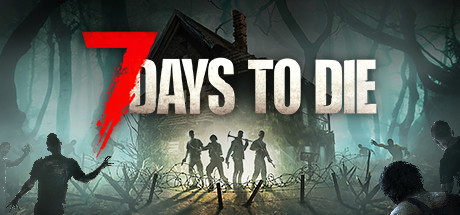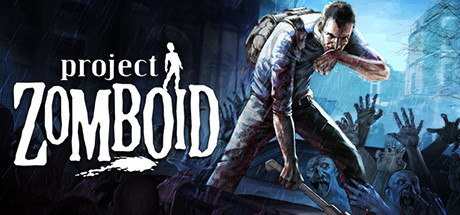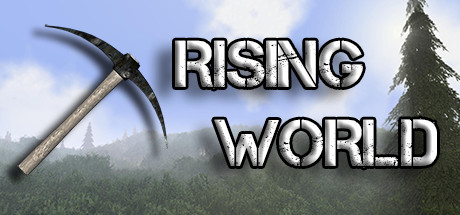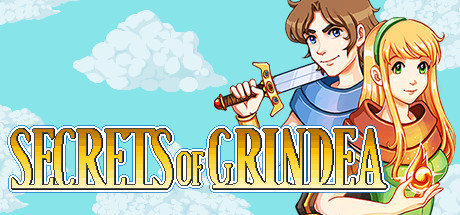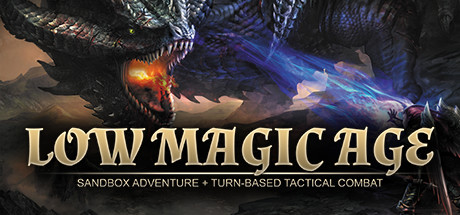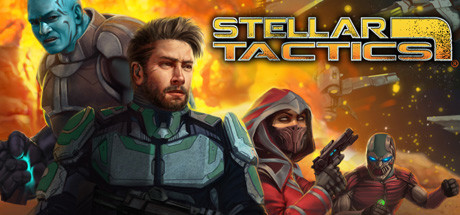Path of Achra Reviews
Path of Achra is a dark fantasy roguelike of the ancient earth, with a focus on streamlined controls and rapid hero customization. A "broken build sandbox." Fight through the deadly lands of Achra to reach the horrors of the Obelisk, and discover what lies beyond...
| App ID | 2128270 |
| App Type | GAME |
| Developers | Ulfsire |
| Publishers | Slouching Beast LLC |
| Categories | Single-player, Steam Achievements, Steam Cloud |
| Genres | RPG, Early Access |
| Release Date | 1 May, 2023 |
| Platforms | Windows |
| Supported Languages | English |
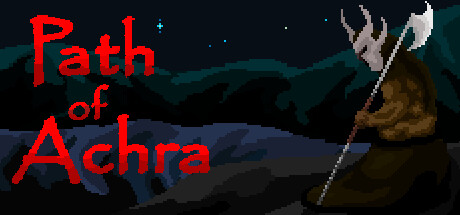
2 578 Total Reviews
2 537 Positive Reviews
41 Negative Reviews
Very Positive Score
Path of Achra has garnered a total of 2 578 reviews, with 2 537 positive reviews and 41 negative reviews, resulting in a ‘Very Positive’ overall score.
Reviews Chart
Chart above illustrates the trend of feedback for Path of Achra over time, showcasing the dynamic changes in player opinions as new updates and features have been introduced. This visual representation helps to understand the game's reception and how it has evolved.
Recent Steam Reviews
This section displays the 10 most recent Steam reviews for the game, showcasing a mix of player experiences and sentiments. Each review summary includes the total playtime along with the number of thumbs-up and thumbs-down reactions, clearly indicating the community's feedback
Playtime:
718 minutes
If you've ever played Dungeon Crawl: Stone Soup, this game feels like their drug-addicted second cousin. How you can interact with the game is significantly more limited. but the build synergies and the assembly of a good run is much more to-the-point and streamlined. You know you have a good run when you can hold tab to win. I feel like the game beat itself when I ran a summoner build.
I'm setting it down for probably some months or years from now, because I fear that it might consume my weeks and months.
I recommend this game to roleplaying build enthusiasts, isaac addicts that would waste hours rerolling for brimstone, and casual audiences. It's an ideal time killer, and an easy power fantasy (sometimes).
👍 : 0 |
😃 : 0
Positive
Playtime:
1043 minutes
I'm only a few hours in, but I am hooked on the gameplay loop and style. I love the variety of options and synergy. The creativeness on display is also very cool, from the sprites to the world, to how even your choice of god will change your character sprite slightly. The game might look kinda like one of those really intimidating old school rougelikes, but interaction with the dungeons themselves are kept minimal; you get to focus on the character building and seeing your build vaporize the screen so it is much easier to digest.
👍 : 0 |
😃 : 0
Positive
Playtime:
3109 minutes
Really cool art style. For a single developer everything looks so cool and speaks to the imagination. incredibly impressive work.
👍 : 0 |
😃 : 0
Positive
Playtime:
11506 minutes
Best game in existence.
It looks like a fucked up excel sheet, plays kind of like a fucked up excel sheet,
I 100% recommend it!!!
👍 : 0 |
😃 : 0
Positive
Playtime:
651 minutes
A simple roguelike with crazy build possibilities (like just passing turns until everything dies).
👍 : 0 |
😃 : 0
Positive
Playtime:
1351 minutes
Path of Achra is a standout entry in the ever-growing field of roguelike RPGs, presenting a game that embraces simplicity in interface and visuals while offering an astoundingly deep and flexible build system. The game wastes no time with conventional story exposition—instead, it drops the player into a mythic, crumbling world filled with cryptic titles, ancient ruins, and relentless enemies. You move forward, level by level, toward the mysterious Obelisk, carving a unique path through violence, transformation, and divine influence. The experience is unapologetically systems-driven, with an emphasis on creating wild synergies, experimenting with layered effects, and manipulating a finely tuned engine of destruction through careful planning or sheer creative chaos.
What immediately sets Path of Achra apart is its trio-based character creation system. Rather than simply selecting a class, players combine a culture, a class, and a god—each of which brings its own set of stats, passive effects, and abilities. These three layers multiply the game’s replayability, allowing for hundreds of viable and wildly different builds. A single run might see you as a blood-fueled monk who teleports and sets enemies ablaze, while another might create a necromantic archer who explodes corpses and absorbs their souls. It invites experimentation without hand-holding, and over time you begin to learn which combinations lead to synergistic feedback loops—turns that chain together into blinding bursts of elemental fury or tanky survivability engines that seem to absorb entire swarms of enemies without breaking a sweat.
Combat takes place on tight grid-based maps that often resemble puzzle arenas more than traditional dungeons. Every movement, attack, or passive effect triggers in a highly responsive chain of events, meaning positioning, timing, and even the decision to remain still can alter the outcome dramatically. Despite its text-heavy interface and lack of animation, battles are fast, punchy, and full of emergent storytelling. You might enter a level expecting a quick win, only to find yourself surrounded by ranged foes, poisoned, and bleeding out—until a last-second teleport, followed by a divine shield and counterattack, turns the tide. These moments don’t feel scripted or artificially dramatic; they arise naturally from the systems in play, and that’s part of what makes each run feel so uniquely yours.
The visual design is deliberately minimalist, with retro pixel art that prioritizes readability over spectacle. Characters are defined more by their mechanics than their sprites, and the interface, while stark, is efficient. The sparse aesthetic has a certain bleak charm, which suits the game’s tone: this is a world of faded gods, twisted rituals, and silent tombs, and the game reflects that through its somber color palette and atmospheric score. There’s no voice acting, no elaborate cutscenes—only the slow, methodical journey through increasingly perilous maps and the quiet satisfaction of bending the game’s rule set to your will.
One of the most satisfying aspects of Path of Achra is how it scales with the player's understanding. Beginners will likely find themselves overwhelmed by the array of choices, effects, and overlapping systems, but the game does a good job of making early runs accessible. You can complete a run in a relatively short time, which makes experimentation feel rewarding rather than punishing. As you win, you unlock new classes and gods, expanding the pool of possibilities and encouraging new strategies. The higher cycles of the game introduce tougher enemies and more punishing mechanics, but they also provide the playground for true mastery—where carefully optimized builds can reach absurd levels of power, clearing levels with barely a scratch.
That said, the game is not without its limitations. The enemy variety is serviceable but begins to show repetition in longer sessions, and while the UI is clean, it can occasionally feel too spartan for players used to more visually rich games. Some builds, particularly at higher power levels, may lean into passivity—there are runs where you’re essentially holding down one key as dozens of enemies fall in succession. For some, that’s the dream: a power fantasy borne of intelligent design. For others, it might edge too close to automation. Still, the underlying systems are so flexible that even those seeking challenge can find it by choosing underpowered combinations or pushing deep into harder cycles.
Ultimately, Path of Achra is a testament to the depth that can be achieved with focus, restraint, and a clear design vision. It trusts the player to learn by doing, to discover strength through curiosity, and to find beauty not in flashy presentation, but in mechanical elegance. It evokes the spirit of classic roguelikes while introducing enough modern ideas to feel fresh and accessible. Whether you’re in it for the challenge, the creativity, or the endless build experimentation, Path of Achra offers a compelling and rewarding journey that continues to evolve long after the first ascent to the Obelisk.
Rating: 9/10
👍 : 3 |
😃 : 0
Positive
Playtime:
1137 minutes
This game rules.
It's simple to play yet provides plenty of depth and complexity. All the various Cultures, Classes, Religions, Skills, Equipment (or lack thereof, as some builds prioritize empty equipment slots) and Prestige Classes provide tons and tons of combinations and replay value. The sheer amount of brokenness one can achieve is staggering.
I've experienced quite a few moments of pure elation as I've watched my character melt waves of enemies like they are butter before a hot knife. Death also feels fun, as it teaches the player what doesn't work, or where further refinement of a viable build might be applied. The static and transparent nature of your equipment pool makes RNG much less of an issue here than it is in many other rogue-likes, which greatly cuts down on potential frustration factor. (It is still possible to get less-than-optimal gear choices for a build one might be running, but chances are you're going to find something that still works for your current playthrough).
Honestly I couldn't recommend this game enough. That, and it all comes at a very reasonable price tag.
👍 : 1 |
😃 : 0
Positive
Playtime:
1613 minutes
Hyper-streamlined traditional roguelike that dares to ask if a run could be finished in about an hour instead of *many hours*. Mostly about making and figuring out busted, overpowered builds in short, contained bursts. I recommend it.
👍 : 4 |
😃 : 0
Positive
Playtime:
4048 minutes
This game is an amazing fever dream of gore, fire, summoning and death.
Under the hood it is a "not-so-complicated" trigger builder - build builder, if you will, but if you play for a while, you may find yourself captivated by all the possibilities and synergies with items, classes, gods and so on.
You start with a small selection of options during your first few runs, but the rest is very quickly unlocked.
The difficulty can be progressively boosted after you beat the previous one - this forces you to optimize your builds and tactics - this stimulates me greatly. Overall, the amount of satisfaction you can get when you finally get your naked ape axeman who can turn into a dragon running cannot be expressed by words.
You will fail more times than you can count, sometimes due to your own hubris, sometimes due to some bullshit goddamn passive ability of an enemy you learned to ignore on lower difficulties.
Buy and try to walk the dusty Path, Struggler.
👍 : 4 |
😃 : 0
Positive
Playtime:
1118 minutes
I had to uninstall this game to get anything done. I'm not proud to admit that the nearly 20 hours I've sunk into this game (at this time of writing) happened across only two weekdays. I have a day job mind you. Don't ask me how that math works, but I can promise it didn't involve much sleep. Build variety is deceptively complex yet absurdly simple to understand. I haven't gotten hooked so quickly and intensely on anything since cocaine. Keep this game away from me.
👍 : 15 |
😃 : 6
Positive


